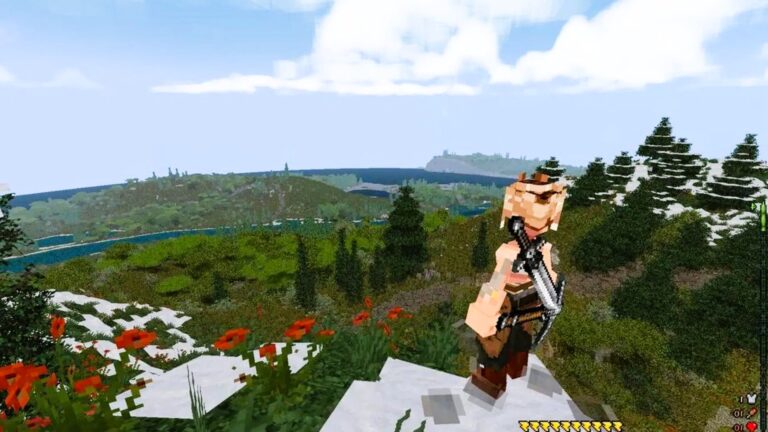Alright, game devs—listen up. You’ve got skills, a killer team, and projects under your belt. But if you’re not offering your services to other companies, you’re leaving serious money on the table. Studios that only rely on their own game releases live or die by sales numbers, but those that diversify their income streams? They get that sweet, stable cash flow.
The trick is knowing how to position yourself as the go-to studio for companies that need game dev expertise—whether it’s a publisher, a brand looking to gamify their marketing, or another studio needing extra hands. So, let’s break it down.
1. Know Your Strengths – What Can You Offer?
Before you start pitching your studio’s services, take a hard look at what you’re actually good at. You can’t be everything to everyone—specialization is key.
Ask Yourself:
- Do we excel at game engine expertise (Unreal, Unity, custom engines)?
- Are we wizards at multiplayer networking and online infrastructure?
- Can we port games to different platforms like a boss?
- Do we have a killer art and animation team?
- Are we rockstars at VR/AR development?
- Can we build serious games (education, medical, training simulations)?
Once you lock down what you do best, lean into that hard. Make it your pitch. Nobody’s hiring a generalist—they want the best in a niche.
2. Build a Portfolio That Slaps

Nobody cares what you say you can do—they want proof. Your portfolio should be an instant hype machine that shows exactly why companies should hire you. Read about how eSports tournament organizers can attract new partners.
Must-Haves for a Killer Portfolio:
✅ Playable Demos – If possible, let people interact with your work. Nothing sells your skill like a hands-on experience.
✅ Before & After Comparisons – Show how you transformed assets, improved code, or optimized performance.
✅ Case Studies – Detail how you solved a problem for a previous client or project. Numbers = credibility.
✅ Video Breakdowns – Quick, high-quality videos showing your work in motion make a huge impact.
✅ Big-Name Clients (if you have them) – If you worked with a known company, flaunt it. Instant trust booster.
💡 Pro Tip: Keep your portfolio short and to the point. No one’s reading a 20-page PDF.
3. Who Needs Your Skills? (Hint: More Than Just Game Companies)
You might think your only clients are other game studios, but you’re missing a goldmine if that’s your mindset. Tons of industries need game dev skills.
Companies That Need Game Dev Studios:
| Industry | Why They Need You |
|---|---|
| Indie & AAA Studios | Outsourcing art, coding, level design, or multiplayer features. |
| Brands & Marketing Agencies | Gamified ads, branded mini-games, AR/VR marketing experiences. |
| E-learning & Training | Serious games for corporate training, education, military, healthcare. |
| Tech & AI Companies | Game engines for simulations, AI training, and procedural generation. |
| Film & TV Studios | Previsualization, interactive storytelling, virtual production. |
💡 Pro Tip: If you’re chasing non-gaming clients, explain game dev in their language. Don’t say “We create 3D game assets in Unity.” Instead, say “We build interactive virtual experiences to engage your audience.”
4. Outreach That Doesn’t Suck
Let’s be real—cold emails suck. If you’re just spamming “Hey, we offer game development services!” to random companies, you’re doing it wrong. Instead, build relationships before you pitch.
How to Get Companies Interested in Hiring You:
- Network Like a Pro – Attend GDC, Gamescom, SIGGRAPH, and industry meetups. Shake hands, talk shop, and make real connections.
- Post Your Work Online – Share your process, breakdowns, and finished projects on ArtStation, Twitter, LinkedIn, and dev forums.
- Write Dev Blogs – Show you know your stuff by sharing deep-dive articles on game dev topics. Companies love hiring thought leaders.
- Answer Questions on Forums – Help people on Stack Overflow, Unreal/Unity forums, and Reddit. It builds your rep.
- Leverage LinkedIn – Follow key people at target companies. Engage with their posts before sliding into their DMs with a pitch.
5. Price Your Services Without Screwing Yourself Over
One of the biggest mistakes game dev studios make? Underpricing their work. If you’re pricing like a freelancer instead of a studio, you’re losing money fast.
Common Pricing Models:
| Model | Pros | Cons |
|---|---|---|
| Hourly Rate | Great for small projects, easy to track. | Clients may freak out over high hourly costs. |
| Fixed Price Per Project | Clients love predictability. | Risk of underestimating work & losing money. |
| Retainer (Ongoing Work) | Consistent income, stability. | Requires strong trust with the client. |
| Revenue Share (Risky) | High potential upside. | If the game flops, you get nothing. |
💡 Pro Tip: Always factor in taxes, overhead, and buffer time when setting prices. You’re not just paying developers—you’ve got software, hardware, and business costs.
6. Contracts Save Your Butt (Use Them)

If a company wants to hire your studio, get everything in writing. No “handshake deals,” no “we’ll figure it out later.” A proper contract covers:
- Scope of Work – What exactly you’re delivering. No vague promises.
- Payment Terms – How much, when, and how. Milestone-based payments are best.
- Ownership & IP Rights – Who owns the work after it’s done? Make sure you get paid for reuse.
- Revision Limits – Unlimited revisions = unlimited headaches. Set a number.
- Kill Fees – If they cancel the project, you don’t walk away empty-handed.
💡 Pro Tip: If a company refuses to sign a contract? Walk away. That’s a red flag.
7. Deliver Quality, Not Just Code
The best way to keep landing contracts? Blow your clients away. The gaming industry is tight-knit—word spreads fast. If you deliver killer work, you’ll get repeat business and referrals.
How to Stand Out as a Studio-for-Hire:
- Be Professional – Hit deadlines, communicate clearly, don’t ghost clients.
- Optimize Everything – Nobody wants bloated, unoptimized code. Clean work = more contracts.
- Think Beyond the Code – Help clients solve game design challenges, not just technical ones.
- Underpromise, Overdeliver – Surprise them with extra polish and attention to detail.
Game development isn’t just about making cool games—it’s a business. If you want your studio to survive long-term, offering your services to other companies is a smart move. It gives you financial stability, industry connections, and more projects to flex your skills on.
If you want to get deeper into game industry standards, check out this Wikipedia page on game development.
Now get out there and turn your game dev studio into a money-making powerhouse.




